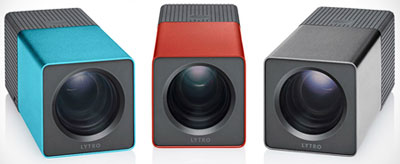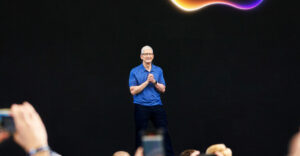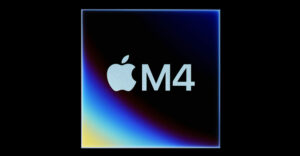
Windows 8 is likely the most ambitious UI project for Microsoft since Microsoft Bob, and we all know how that ended up. What was kind of sad about Microsoft Bob was that for what it was intended to do, it was both cutting-edge and very successful. However, because it was positioned as the follow-on to Windows, the bar was set too high and the product failed spectacularly.
We’ve since seen products like the RIM PlayBook — which was a brilliant BlackBerry accessory but not designed to be a standalone product like the iPad — fail for similar reasons.
I could argue that if folks initially saw the iPod as a heavy, expensive device with poor content access (remember it launched without either Windows support or iTunes), or the iPhone as crappy, expensive, fragile phone with slow connectivity (2.5G in a 3G time frame, no screen protection, based on the failed LG Prada), or the iPad as an expensive netbook without a keyboard (which is kind of what it is), they would have failed too.
But Apple got us to see those products for what they could do, and instead of turning into door stops — which most similar devices became — they were massive successes.
What people, particularly engineers, don’t seem to get is that the success of a product is dependent more on the perceptions that surround it than on reality. That is why the iPad is a magical, successful device, and the PlayBook is a failure. People saw the iPad for what it could do and the PlayBook for what it couldn’t.
For Windows 8 to succeed, buyers will have to see it as the best blend of the iPad and the MacBook Air, which is a compelling value. If they see it as an overly complex mess, it will be the next Vista. My peers are split on how this is likely to turn out.
I’ll close with my product of the week: an amazing camera that makes focusing obsolete.
Playing to Perceptions
We are all biased. What is amazing is how many of us try to argue that we aren’t. We can watch MSNBC or Fox and actually think one is balanced and the other isn’t. If we stood back, we should be able to determine that both services play to their own unique audiences and tailor very different positions to appeal to broadly different biases. In short, it is likely both services are intentionally leaving out key information to further their particular biases.
I was reminded of this when I was sent a story by Fox news that referenced a liberal site speaking from Democratic talking points, suggesting that such behavior was objectionable. This came within a few days of “The Daily Show” playing a clip of Fox doing the same thing with Republican talking points. It is doubtful either side thought what it was doing was wrong, even though each criticized the other for doing it.
One of the industry secrets is that current Apple Hardware is very fragile, but Apple will aggressively replace it if it fails. Looking at Apple margins, it apparently is cheaper to accept the breakage than it is to build more robust products and, because they take excellent care of users when they break, the users actually think more of Apple than vendors with more robust products.
Ironically, I first ran into this perception issue in the 1990s with Dell. Back then, Dell hardware was very fragile, but Dell took excellent care of users when it broke, and Dell enjoyed Apple-like growth and success back then. It is fascinating to note that Apple has basically learned something from Dell that Dell later forgot — that maintaining the perception of excellence is actually more important than achieving excellence.
Chances are your — and my — entire world is defined by largely false perceptions — from people we think are evil who aren’t, to people we think are good who aren’t. Most are someplace in between. You generally see this most pronounced when a marriage fails quickly. Both spouses will often defend their partner to those who think the marriage is a mistake up until the marriage fails, and then they’ll instantly become their greatest critic, finding nothing endearing about them. Neither state is accurate — yet in both instances, they are clearly unaware of their own biases or inconsistencies.
This is a long way of saying our perceptions are our reality, and if you don’t get that, stop reading now because you won’t get the rest of this any better.
Windows 8 vs. the MacBook Air + iPad
What Microsoft is trying to build is actually rather compelling. Much like the smartphone is a combination of a Palm Pilot, iPod, and phone, the ideal Windows 8 desktop will be a combination of an Ultrabook like the MacBook Air, and a tablet like the iPad.
Now this entire concept works if you mentally grasp that it is better to carry one device that does both than to haul around two distinctly different devices. With the two devices, you have all the objections that surround Windows 8’s two interfaces. Apple’s iOS and Mac OS X are different, after all. Rather than increasing complexity, removing one of the devices actually reduces the complexity.
But much like you have the iPod interface, the phone interface, and the PDA interface, depending on what app you open on the iPhone, each mode of Windows 8 has a different user experience tied to it. Metro is for when it is a tablet, and the older Windows interface is best when it is in PC mode.
Now let’s go back to early last decade, when we had Palm PDAs and the first iPods, and Motorola’s flip phone was the most popular phone. If someone would have tossed out a phone that tried to blend all three, it is unlikely the market would have seen it positively. It would have been a thick, heavy phone, without the flip feature people were buying. Remember the first Apple phone: The Roker sucked — even Steve Jobs hated it.
Both the device and the market had to evolve to something that could be seen as wonderful, and the iPhone was born.
Now what will be interesting — interesting defined as incredibly difficult to message — is the fact there will be two (actually you’ll discover there are three, but I’ll cover that at a later date) distinct versions of Windows 8: one that will emphasize traditional PC performance and capability, and one that will be focused on tablets and emphasize battery life. This is a choice Apple doesn’t have, and if people like the choice, it is a winner. If they get confused, Tim Cook and Google will be grinning ear to ear.
Wrapping Up: It Is All About Perceptions
One huge advantage Apple has is the way it approaches the market. It puts a huge effort into ensuring positive coverage of its products and, by containing leaks, preventing any uncontrolled early negative perceptions from seeing the light of day.
Microsoft’s partner model limits its ability to control initial impressions — responses to Windows 8 are now based on a rough Beta — and requires that its partners execute with a consistent, powerful message. Often, that’s were launches fail.
In the end — and I’ve been using the Beta for a couple of weeks now — Windows 8 is potentially wonderful. However, it is also incredibly difficult to message, which will make this rollout, one way or the other, one for the history books.
Product of the Week: Lytro Camera

Every once in a while, a product comes out that makes everything before it appear on the verge of being obsolete. The Lytro camera is just such a device. It makes current cameras appear woefully inadequate, even though it has clearly not reached its full potential yet.
What the Lytro does is capture a massive amount of visual information when you take a picture, allowing you to focus after the picture is taken. In short, everything is in focus — you just have to change perspective on the picture itself to change what you are focused on. Have something you like in the background — shift perspective, foreground same. This is simply not possible with other cameras.

For now, I recommend this Mac-only product only for true geeks, given its limitations — it is kind of like an ultra-modern version of the first box Kodak camera, at this point.
There appears to be little doubt that this technology could transform digital photography. We often talk about Innovation, and the truly amazing Lytro camera pushes innovation to the limit, so it is my product of the week.






















































